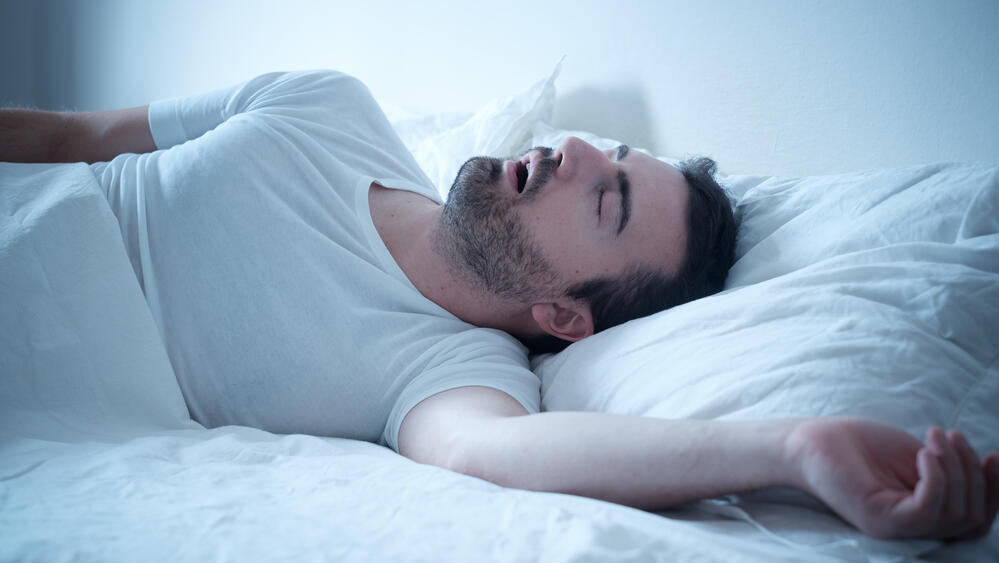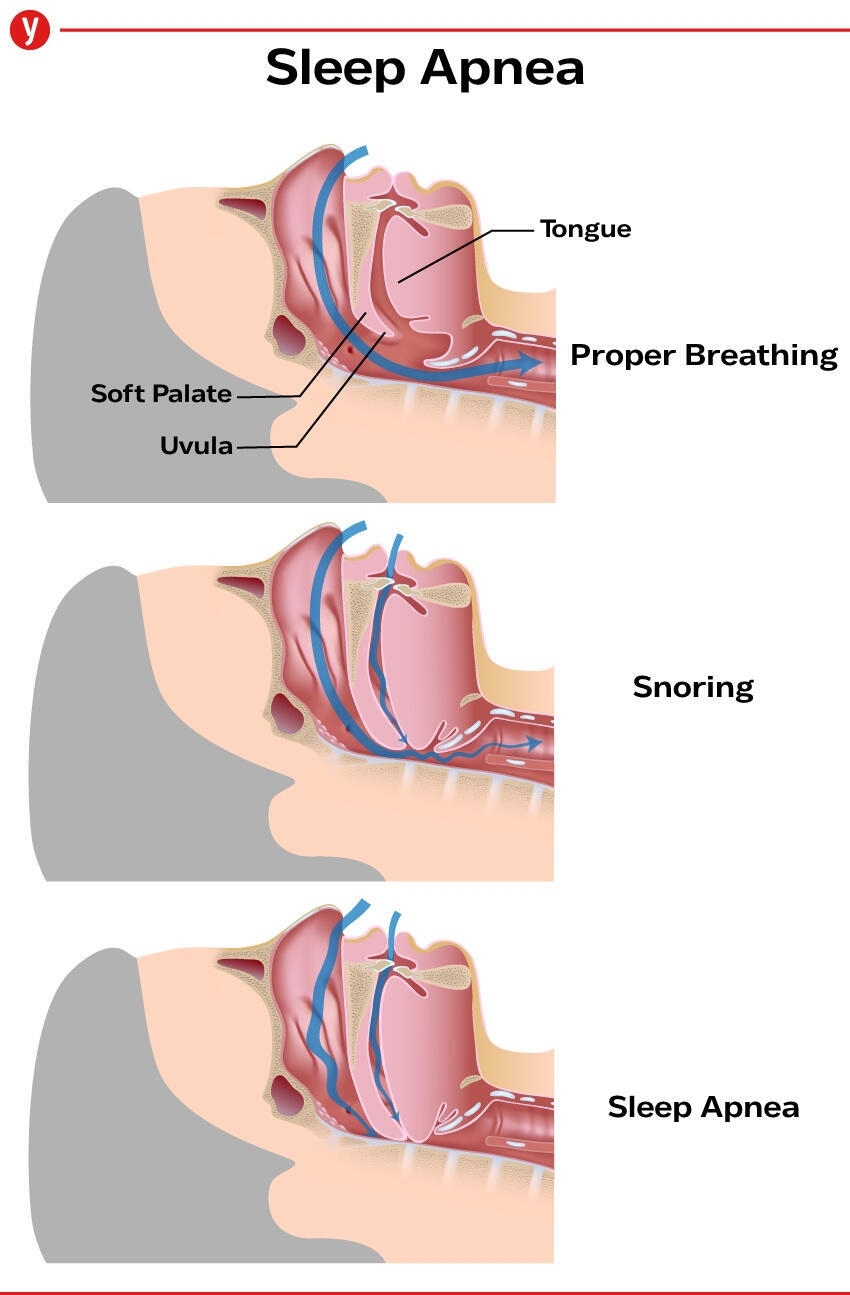Getting your Trinity Audio player ready...
Sleep apnea affects at least a quarter of men worldwide and is manifested not only in snoring but also in hundreds or even thousands of breathing difficulties during sleep.
Related stories:
A new study published in Frontiers in Sleep reveals that the phenomenon not only affects the heart as previously estimated but also the brain.
In the study conducted in the UK, Germany, and Australia, 27 men between the ages of 35 and 70 who were not overweight and were diagnosed shortly before the study as suffering from mild to severe sleep apnea were recruited.
Seven men who didn’t deal with sleep apnea but had the same age, body structure, and medical background as other subjects were also included as a control group. Both groups underwent a series of tests that included measuring brain waves, blood oxygen levels, respiratory rate, and heart rate. Eye and leg movements were also tracked to help identify the sleep stages each person went through.
The subjects also underwent psycho-deductive tests for brain function, and the results showed that those who suffered from severe sleep apnea received low scores: they exhibited low levels of alertness, executive function, visual short-term memory tests, facial recognition, and emotional tests.
Patients with mild obstructive sleep apnea achieved better scores in these areas. Those who didn’t suffer from it at all achieved the highest scores.
The researchers concluded that sleep apnea causes cognitive impairments. Previous studies have found that it only causes damage to the heart, blood vessels, and metabolic diseases such as diabetes.
The study's authors speculate that the cognitive impairments may be caused by low oxygen levels, high levels of carbon dioxide in the blood, disruption of the sleep process, and possibly inflammation in the brain’s nerve fibers. All of these probably cause extensive structural changes in the brain and form cognitive and emotional impairments.
Obstructive sleep apnea, which is the most common type of sleep apnea, occurs when various muscles in the throat become relaxed and block airways for breathing.
Separately, central sleep apnea occurs when the brain doesn’t send the proper signals to the muscles that control breathing. In both cases, people suffer from hundreds to thousands of breathing interruptions during sleep, leading to frequent snoring and waking.
These breathing interruptions disrupt the normal sleep cycle and can increase blood pressure and affect heart function.
Diagnosis of sleep apnea is usually done in a sleep lab or through home sleep testing equipment. The required treatment usually involves weight loss, altering diet plans, exercising, and the use of a continuous positive airway pressure (CPAP) mask that pushes air into the lungs at high pressure.




